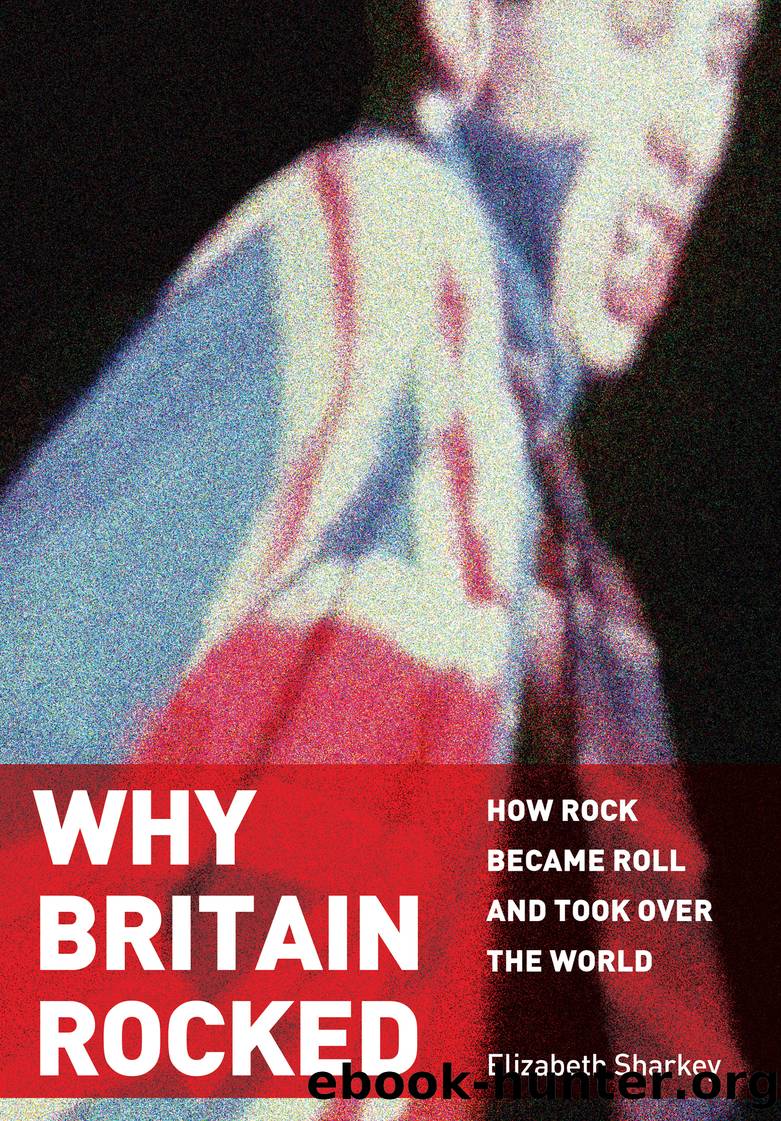Why Britain Rocked by Elizabeth Sharkey;

Author:Elizabeth Sharkey;
Language: eng
Format: epub
Publisher: Lightning Source Inc. (Tier 3)
16
âSqualid Liverpool â
âThe Irish have a notion that any part of the world is better than Ireland, and consequently are fond of changeâ¦nine tenths of the Irish settled in England did not come over from necessity, but in a wild spirit of adventure.â These are the words of Michael J. Whitty taken from a report commissioned by the House of Commons in 1833 on the subject of the Irish poor in England. Whitty was a self-made man who lived by his own belief. He was born in 1795 into a farming family in Ducormick, County Wexford but when his fatherâs business faltered in 1821 it was in the spirit of adventure that he ventured to London to become a journalist. Possessed of charm and intelligence he became a great name in the literary world, publishing his Tales of Irish Life on the customs and culture of Ireland that was translated into French and German and re-published in America. He moved to Liverpool in 1830 where he become the editor of The Liverpool Journal, launched the penny newspaper the Liverpool Daily Post and was a much loved and respected Liverpudlian; he spent forty-three years living in the city until the end of his life.
Thousands of Irish men and women were to make the same journey to England during Whittyâs lifetime; not in the spirit of adventure but for their survival, and they did so on an epic scale. By ratio of population, Ireland has sent more immigrants out into the world than any other nation. Around eight million people have emigrated from Ireland since the first exodus of the Ulster Scots. Of that enormous figure, five million left between 1800 and 1870. On the eve of the Great Hunger nearly half a million Irish men and women, mainly Ulster Protestants, had already arrived in Scotland and England, having migrated in a steady stream over several decades to find work as agricultural labourers or weavers. But this figure was dwarfed by the mass of people who came over when the Potato Famine hit. Between 1845-49 and the bleak years following, over two million people left Ireland. Even as farming conditions dramatically improved in the 1860s and 1870s, the compulsion to leave remained until âno Irish family was untouched by it.â
Liverpool was the main point of entry. To get there was âa trifling expenseâ after the development of its docks and international shipping links reduced the price of a ticket to little more than a ferry ride. But for Irelandâs emigrants, settling in England was the short straw. Those who could afford it, at the price of £4 10s circa 1880, the Atlantic passage granted themselves a shining future in the USA or Canada and they were seen off by the people in their district with an all-night party of drinking, music and dancing at a âconvoy house.â At the break of daylight, the lamentations would begin. The emigrant would be âdrowned with tears and dried with kissesâ as the whole company walked with them the first few miles of their âfoot-slogâ to the port.
Download
This site does not store any files on its server. We only index and link to content provided by other sites. Please contact the content providers to delete copyright contents if any and email us, we'll remove relevant links or contents immediately.
Kathy Andrews Collection by Kathy Andrews(10520)
The remains of the day by Kazuo Ishiguro(7551)
Spare by Prince Harry The Duke of Sussex(4198)
Paper Towns by Green John(4169)
The Body: A Guide for Occupants by Bill Bryson(3802)
Be in a Treehouse by Pete Nelson(3213)
Harry Potter and the Goblet Of Fire by J.K. Rowling(3046)
Goodbye Paradise(2964)
Never by Ken Follett(2881)
Into Thin Air by Jon Krakauer(2701)
The Remains of the Day by Kazuo Ishiguro(2619)
The Genius of Japanese Carpentry by Azby Brown(2609)
The Cellar by Natasha Preston(2595)
Drawing Shortcuts: Developing Quick Drawing Skills Using Today's Technology by Leggitt Jim(2532)
120 Days of Sodom by Marquis de Sade(2438)
Architecture 101 by Nicole Bridge(2350)
The Man Who Died Twice by Richard Osman(2300)
Machine Learning at Scale with H2O by Gregory Keys | David Whiting(2292)
Fairy Tale by Stephen King(2070)
